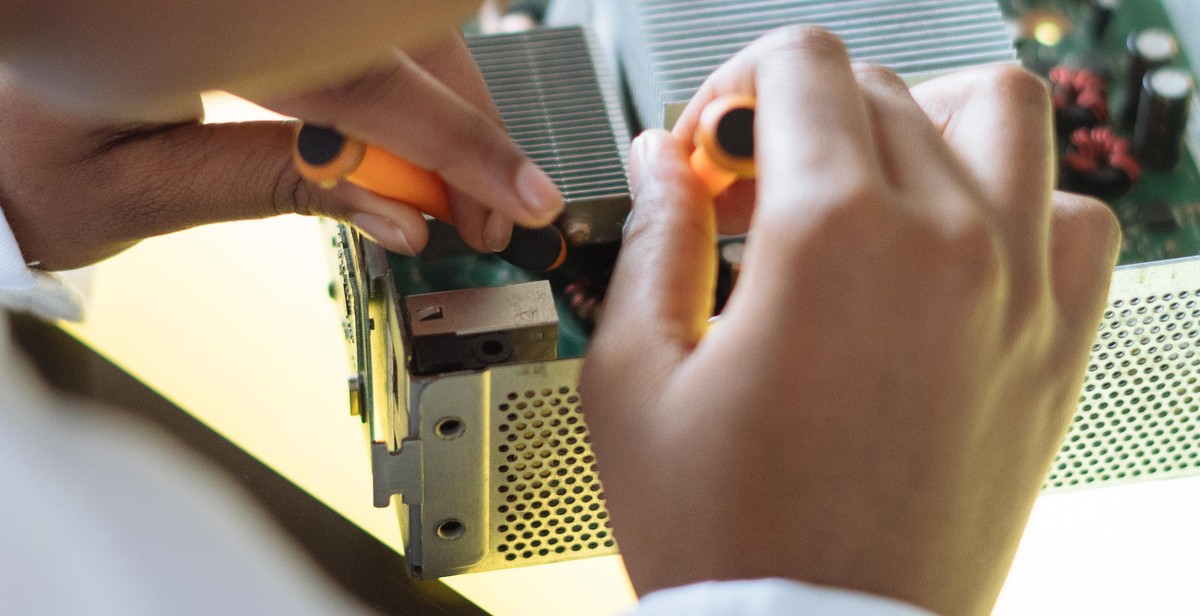How to Maintain an Electric Fence: Tips for Keeping Your Electric Fencing System in Good Condition
Electric fences are an excellent way to keep your livestock and property safe from intruders. However, just like any other fencing system, electric fences require proper maintenance to ensure their effectiveness and longevity.
As a professional with over a decade of experience in the installation and maintenance of electric fences, I have seen firsthand the benefits of proper maintenance. In this article, I will share with you some tips on how to maintain your electric fence and keep it in good condition.
Why is Electric Fence Maintenance Important?
Electric fences are constantly exposed to the elements and are therefore susceptible to wear and tear. Without proper maintenance, your electric fence may become less effective, leading to potential security breaches and increased risk to your livestock.
Moreover, a poorly maintained electric fence may lead to increased repair costs and reduced lifespan. Regular maintenance will help you identify and address issues before they become major problems.
Tips for Maintaining Your Electric Fence
- Regularly inspect your electric fence for damage or wear and tear. Look for broken wires, damaged insulators, and loose connections.
- Clear any vegetation that may be growing around your electric fence. Vegetation can cause short circuits and reduce the effectiveness of your fence.
- Ensure that your electric fence charger is functioning properly and that the voltage is at the right level.
- Regularly check your battery and solar panel to ensure they are charging properly.
- Train your livestock to respect the electric fence. This will reduce the risk of damage to your fence and keep your animals safe.
By following these tips, you can ensure that your electric fence is always in good condition and providing the security and safety that you need.

Understanding Your Electric Fence
Electric fences are a popular choice for livestock and property owners as they provide an effective, affordable, and low-maintenance method of containing animals and securing property. To properly maintain your electric fence, it’s important to understand how it works and the different types of electric fences available.
How an Electric Fence Works
An electric fence works by delivering a brief, high-voltage shock to an animal that comes into contact with the fence. This shock is not harmful, but it is enough to deter the animal from trying to cross the fence. The fence is powered by a charger, which converts AC power into a high-voltage pulse that travels along the fence wire.
The charger is connected to a ground rod, which completes the electrical circuit and ensures that the shock is delivered when an animal touches the fence. Some chargers are solar-powered, while others require a direct power source.
Types of Electric Fences
There are two main types of electric fences: permanent and temporary. Permanent electric fences are typically used for large livestock operations or to secure property boundaries. These fences are made of high-tensile wire and are designed to last for years with minimal maintenance.
Temporary electric fences, on the other hand, are ideal for rotational grazing or for containing animals in a specific area for a short period of time. These fences are made of polywire or polytape and can be easily moved and reconfigured as needed.
Another type of electric fence is the electric netting fence, which is designed to contain poultry, small livestock, and pets. These fences are made of a mesh material and are easy to set up and move as needed.
| Type | Use | Material |
|---|---|---|
| Permanent | Livestock, property boundaries | High-tensile wire |
| Temporary | Rotational grazing, short-term animal containment | Polywire, polytape |
| Electric netting | Poultry, small livestock, pets | Mesh material |
Understanding how your electric fence works and the different types available can help you choose the right fence for your needs and keep it in good condition for years to come.
Tools and Equipment You Will Need
Maintaining an electric fence requires some specialized tools and equipment. Here is a list of the essential items you will need:
1. Fence Tester
A fence tester is a device that measures the voltage on your electric fence. It helps you detect any issues with your fence and ensures that it is functioning correctly. You can choose between digital or analog testers, depending on your preferences.
2. Multimeter
A multimeter is another device that can measure the voltage on your electric fence. It is useful when you need to troubleshoot any electrical issues with your fence. It can also help you identify any problems with the grounding system.
3. Wire Cutters
Wire cutters are essential for cutting the wire used in your electric fence. They come in handy when you need to replace damaged wires or make adjustments to your fence.
4. Crimping Tool
A crimping tool is used to attach connectors to the wire used in your electric fence. It ensures that the wires are securely connected and prevents any electrical issues from occurring.
5. Insulators
Insulators are used to prevent the electric current from escaping your fence. They are attached to your fence posts and help keep the wires in place.
6. Ground Rod Driver
A ground rod driver is used to install grounding rods into the ground. Grounding is an essential part of your electric fence system, and a ground rod driver helps you install the grounding rods properly.
7. Gloves
Working on an electric fence can be dangerous, and it’s essential to protect your hands. Gloves can help protect you from electrical shocks and prevent injuries from wire cuts.
8. Safety Glasses
Safety glasses are essential when working on an electric fence. They protect your eyes from any debris that may fly up while working with wire cutters or crimping tools.
9. Voltage Meter
A voltage meter is used to measure the voltage on your electric fence. It can help you detect any issues with your fence and ensure that it is functioning correctly.
Having these tools and equipment will help you maintain your electric fence system and keep it in good condition. It’s essential to use them properly and take all necessary safety precautions when working on your fence.

Basic Maintenance Tips
Maintaining your electric fence is crucial to ensuring its effectiveness and longevity. Here are some basic tips to keep your electric fencing system in good condition:
Regular Inspection and Cleaning
Regularly inspect your electric fence to ensure that it is in good condition. Check for any damage or wear and tear on the fence wires, posts, and insulators. If you notice any damage, replace the affected components immediately. It is also essential to keep your electric fence clean to avoid any interference with the electrical current. Remove any debris, such as leaves or branches, that may be touching the fence wires. This will prevent short circuits and ensure that your electric fence is operating optimally.
Testing Your Electric Fence
Testing your electric fence regularly is another important maintenance tip. Use a voltmeter to test the voltage of your fence. The voltage should be consistent throughout the entire length of the fence. If you notice any significant drop in voltage, it may indicate a problem with your fence. Check the connections and replace any damaged components to restore your fence’s voltage. Testing your fence regularly will ensure that it is functioning correctly and effectively.
Replacing Damaged or Worn Components
Replacing damaged or worn components is critical to maintaining your electric fence. If you notice any damage or wear on your fence wires, posts, or insulators, replace them immediately. Damaged components can compromise the effectiveness of your electric fence and can also be dangerous for animals and people. Regularly inspecting your fence and replacing any damaged or worn components will ensure that your electric fence is functioning optimally and safely.
| Maintenance Tip | Description |
|---|---|
| Regular Inspection and Cleaning | Inspect and clean your electric fence to ensure that it is in good condition and free of debris. |
| Testing Your Electric Fence | Test the voltage of your fence regularly to ensure that it is functioning correctly and effectively. |
| Replacing Damaged or Worn Components | Replace any damaged or worn components immediately to maintain the effectiveness and safety of your electric fence. |

Advanced Maintenance Tips
Dealing with Vegetation
Vegetation can be a major problem for electric fences. Trees, shrubs, and other plants can grow into the fence and cause shorts or even damage the wires themselves. To deal with vegetation, it’s important to regularly inspect the fence line and trim back any plants that are encroaching. You can use shears or a weed whacker to keep the vegetation under control. Be sure to wear protective gear when doing this work, as the fence can still be active even if it’s not at full power.
Addressing Power Surges or Outages
Power surges or outages can also be a problem for electric fences. If the power goes out, the fence will stop working, which can be dangerous if you’re trying to keep livestock in or predators out. If you’re in an area with frequent power outages, you may want to invest in a backup generator to keep the fence powered. You should also have surge protectors installed to prevent damage to the fence in case of a power surge.
Managing Wildlife Interference
Wildlife can also be a major problem for electric fences. Animals like raccoons, squirrels, and birds can chew through the wires or damage the insulators. To manage wildlife interference, it’s important to regularly inspect the fence line for any signs of damage. You can also install deterrents like motion-activated sprinklers or noise makers to keep animals away from the fence. If you’re dealing with larger predators like coyotes or bears, you may need to invest in a higher voltage fence or additional deterrents like electric netting or barbed wire.
| Tip | Description |
|---|---|
| Inspect regularly | Regularly inspect the fence line for any signs of damage or vegetation encroachment. |
| Trim back vegetation | Use shears or a weed whacker to keep vegetation under control. |
| Invest in a backup generator | If you’re in an area with frequent power outages, invest in a backup generator to keep the fence powered. |
| Install surge protectors | Install surge protectors to prevent damage to the fence in case of a power surge. |
| Use deterrents | Install deterrents like motion-activated sprinklers or noise makers to keep animals away from the fence. |
| Consider higher voltage options | If you’re dealing with larger predators, consider a higher voltage fence or additional deterrents like electric netting or barbed wire. |
Conclusion
Electric fencing systems are an effective and efficient way to keep your property safe and secure. However, like any other fencing system, it requires proper maintenance to ensure its longevity and effectiveness. By following the tips outlined in this article, you can keep your electric fencing system in top condition for years to come.
Regular Check-Ups
Regular check-ups are crucial to maintaining your electric fencing system. Inspect your fence at least once a month and make repairs as needed. This will help you catch any problems early on and prevent them from becoming bigger issues.
Cleaning and Lubrication
Cleaning and lubrication are also essential to the maintenance of your electric fencing system. Make sure to clean and lubricate all components of your fence regularly to prevent rust and corrosion.
Proper Grounding
Proper grounding is another critical factor in maintaining your electric fencing system. Ensure that your fence is properly grounded to prevent power surges and ensure its effectiveness.
Professional Help
Finally, don’t hesitate to seek professional help if you need it. A professional electrician can help you with any repairs or maintenance tasks that you’re not comfortable performing yourself.
By following these simple tips, you can keep your electric fencing system in excellent condition for years to come. Remember, a well-maintained fence is a safe and secure fence.
